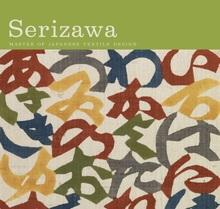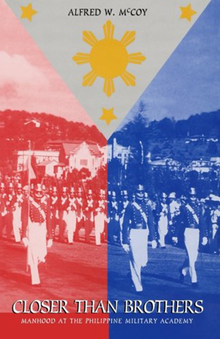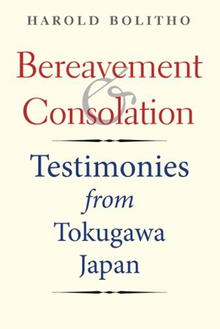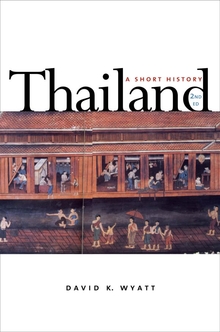Cold War Monks
WARNING
You are viewing an older version of the Yalebooks website. Please visit out new website with more updated information and a better user experience: https://www.yalebooks.com
Buddhism and America's Secret Strategy in Southeast Asia
Eugene Ford
The groundbreaking account of U.S. clandestine efforts to use Southeast Asian Buddhism to advance Washington’s anticommunist goals during the Cold War
How did the U.S. government make use of a “Buddhist policy” in Southeast Asia during the Cold War despite the American principle that the state should not meddle with religion? To answer this question, Eugene Ford delved deep into an unprecedented range of U.S. and Thai sources and conducted numerous oral history interviews with key informants. Ford uncovers a riveting story filled with U.S. national security officials, diplomats, and scholars seeking to understand and build relationships within the Buddhist monasteries of Southeast Asia.
This fascinating narrative provides a new look at how the Buddhist leaderships of Thailand and its neighbors became enmeshed in Cold War politics and in the U.S. government’s clandestine efforts to use a predominant religion of Southeast Asia as an instrument of national stability to counter communist revolution.
How did the U.S. government make use of a “Buddhist policy” in Southeast Asia during the Cold War despite the American principle that the state should not meddle with religion? To answer this question, Eugene Ford delved deep into an unprecedented range of U.S. and Thai sources and conducted numerous oral history interviews with key informants. Ford uncovers a riveting story filled with U.S. national security officials, diplomats, and scholars seeking to understand and build relationships within the Buddhist monasteries of Southeast Asia.
This fascinating narrative provides a new look at how the Buddhist leaderships of Thailand and its neighbors became enmeshed in Cold War politics and in the U.S. government’s clandestine efforts to use a predominant religion of Southeast Asia as an instrument of national stability to counter communist revolution.
Eugene Ford received a PhD in history from Yale University, winning the Arthur and Mary Wright Prize for an outstanding dissertation in the field of history outside the United States or Europe.
"Ford’s immersion in the politics of Thai Buddhism and his formidable powers of synthesis set a new standard in the historiography of Cold War Southeast Asia.”—Michael Montesano, ISEAS-Yusof Ishak Institute, Singapore
"Eugene Ford's Cold War Monks is an important, scrupulously researched, balanced, and innovative study of an aspect of the Cold War that has been neglected. It covers in detail the international organizational aspects of that competition and as well as the national role of Buddhism--especially in Thailand, but also in Laos, Vietnam, and Cambodia--in anti-communist politics, policies, and social welfare activities. It is highly recommended for its insights into Southeast Asian social dynamics."—David Steinberg, Georgetown University
“Cold War Monks is an important book. No other study explains how regional Buddhism, US Cold War policies, the Asia Foundation, and the World Fellowship of Buddhists helped change conservative Thai Buddhism into the politically involved institution that it is today.”—Thak Chaloemtiarana, Cornell University
“Cold War Monks is a pathbreaking study of how Thai Buddhists interacted with American attempts to use their church in the war on communism in Southeast Asia and how Buddhists transformed their faith, indeed their country, in so doing. Superbly researched and brilliantly argued, it places Thailand in the broader sweep of international history – right where it should be.”—Christopher Goscha, The University of Quebec in Montreal
"This is an intelligent study of the US government’s attempt to mobilize Buddhism in five Southeast Asian countries for policy ends during the Cold War. Cold War Monks abounds in insights into the official and, to some extent, covert American 'brain.’”—Craig J. Reynolds, Australian National University
“Ford’s research presents an international tale of secrets, lies, and covert operations showing that Buddhism has always been an integral part of Southeast Asian politics, despite its reputation for somehow “transcending” politics entirely.”—Tricycle
“A very readable history of how the US government, primarily working through aligned entities such as the Asia Foundation, understood and worked with Buddhist scholars, monasteries, and monks in mainland Southeast Asia for particular policy objectives.”—Choice
“Cold War Monks will appeal to readers interested in the history of twentieth-century Thai Buddhism and, more generally, those interested in its case study of a singular, even commendable, American effort to persuade an ancient foreign religious institution to align itself with America’s occasional benign, incurious, and quasi-imperial national interests.”—David Chandler, Journal of Interdisciplinary History
"A fascinating historical study of geopolitical rivalry. . . . But nonspecialists will also find this book worth their time. Often, Cold War Monks reads like a spy thriller. It is populated by historical figures who are both personas and persons; they have public faces that conceal private missions and stated policies that elide secret agendas; and they show remarkable strengths that belie very human frailties."—Richard A. Ruth, H-Net Reviews
Shortlisted for the 2019 Social Sciences Book Prize, English Edition, sponsored by the International Convention of Asia Scholars (ICAS)
ISBN: 9780300218565
Publication Date: October 24, 2017
Publication Date: October 24, 2017
392 pages, 6 1/8 x 9 1/4
5 b/w illus.
5 b/w illus.








